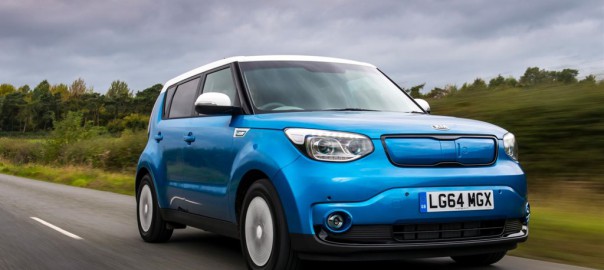NOT LONG ago mention of the “compact crossover” would have drawn blank faces all round.
Now annual sales of these quasi SUVs are set to rise to more than 600,000 in Western Europe by next year, with more than 150,000 of sales in the UK. The Kia Soul joined the party in 2009 to be superseded by the second-generation 1.6-litre petrol or diesel versions this year. However, its funky, boxy styling has not been a hit in the UK, so it’s something of a niche model here.
Kia hopes to make a bigger splash with this new Soul EV, though, which is its first battery-powered electric vehicle. Running on electricity alone, it is sure to be even more of a niche car, although not even Kia is pretending the Soul EV will be high up the sales charts. There is a very limited global supply from the South Korean factory and it will be available only through 13 specially trained dealers in its first year, but this is a car with an eye on the future and Kia is keen to get ahead of its mainstream rivals.
The Soul EV exterior is similar to existing Souls; the most noticeable differences being its blanked-off front air intake (hiding two charging ports), low-drag lightweight alloys with super-low-rolling-resistance tyres plus redesigned light clusters and rear bumper. Under the bonnet lies a 81.4kw electric motor (equivalent to 109bhp) that drives the front wheels via a single speed CVT automatic gearbox.
Housed beneath the floor in a protective casing is an air-cooled lithium-ion polymer battery with a storage capacity of 27 kilowatt hours (which is more than the BMW i3, Nissan Leaf or VW e-Golf). The battery can be recharged either from a standard 13amp wall socket, via the Kia-branded wallbox supplied as standard, at a public fast charger, or from a public rapid charger.
The combination of the two is enough to get the Soul EV from 0 to 60mph in 10.8 seconds and on to a 90mph top speed but the delivery of the electric motor means it feels punchier than those figures suggest.
The motor and drivetrain are also fabulously smooth and the car really couldn’t be easier to drive. The steering feels light but suitably weighted, while pick-up from low speeds is instant with very swift acceleration.
Meanwhile the feel of the brake pedal is linear and has none of the low-speed inconsistency that blights the regenerative braking systems of some other electric and hybrid cars. Weighing just 8kg over the standard turbo-diesel Soul, there’s little discernible difference on the move either.
Thanks to the retuned suspension the little extra weight it carries does not detract from the car’s nimble handling or comfy ride.
On the move, too, it’s eerily quiet and has a Virtual Engine Sound system which at low speeds apparently alerts pedestrians and cyclists to its presence, although we weren’t aware of it inside the car.
As with any all-electric car though, its maximum range is a concern. Kia claims a full charge gives the Soul EV up to 132 miles subject to conditions and driving style. Although 130 or so miles is good for a pure electric car, in practical terms the Soul EV is really only suitable for city or local use.
LOGBOOK LOWDOWN
Price: £24,995 government grant) Electric – 81.4kw 0 to 60mph in 10.8 90mph top speed : up to 132 miles emissions: 0g/km Ford Focus Electric, Leaf, VW e-Golf, Prius Plug-In 8/10 A full recharge takes 10 to 13 hours from a 230v domestic power supply or about five hours from a wallbox or at a public fast-charge point and recharging at a public rapid charger to 80 per cent capacity takes about half an hour.
During our largely urban drive the battery range held up well despite having the air conditioning on (the climate control system has an energy-saving driveronly function) and without being in full Eco drive mode.
REAR LEGROOM is slightly reduced due to the battery’s underfloor location, while the 281-litre boot is lowered because of an undertray housing the recharging cables. A tyre inflation kit replaces a spare wheel and there’s an EV-specific instrument cluster, but otherwise the interior is much the same as a normal Soul. So fit and finish is high standard, there is ample space and practicality plus good front seats.
The Soul EV will come in one spec grade, retailing at £24,995, including a £5,000 government plug-in car grant. This makes it the priciest Soul by £3,445, and more than the 170bhp 100-mile-range BMW i3.
On the upside, the electric Soul has touch-screen sat nav (showing charge point locations), a reversing camera, air con, DAB digital radio, voice recognition and music streaming; plus there are no road tax costs and highly reduced company car tax. If you can cope with the Soul EV’s range, it’s an enticing prospect.
LOGBOOK LOWDOWN Price: £24,995 (after government grant) Engine: Electric – 81.4kw Power: 0 to 60mph in 10.8 seconds, 90mph top speed Range: up to 132 miles CO2 emissions: 0g/km Rivals: Ford Focus Electric, Nissan Leaf, VW e-Golf, Toyota Prius Plug-In Rating: 8/10
Source: Express
